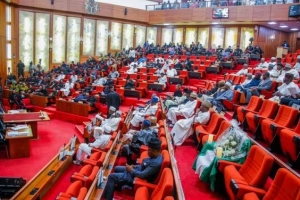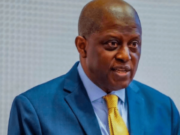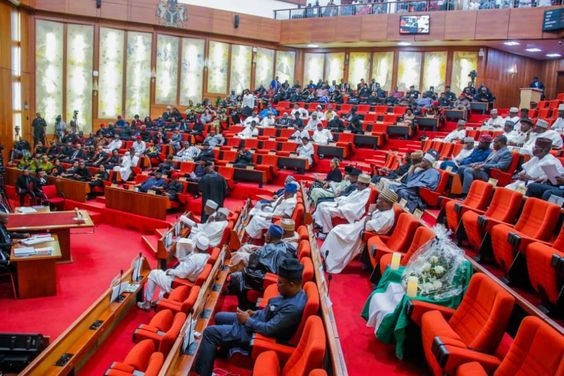Debate Over LG Autonomy Sparks Confusion in Senate
Senate in Emergency Closed-Door Session Over LG Autonomy
Introduction
The Nigerian Senate held an emergency closed-door session on Wednesday following a heated debate over the implementation of financial autonomy granted to the 774 Local Government Councils (LGCs) across the country. This autonomy was affirmed by the Supreme Court in August 2024, creating confusion and opposition among some state governors who are accused of attempting to circumvent the ruling.
Origin of the Conflict
The controversy began when Senator Tony Nwoye (Labour Party, Anambra North) raised a Point of Order in the Senate. Nwoye cited alleged attempts by state governments to pass counter laws through their respective State Houses of Assembly, effectively undermining the Supreme Court ruling on local government autonomy. According to Nwoye, these state laws would require local governments to remit funds into the State/Local Government Joint Accounts, a practice that the Supreme Court had declared illegal.
The motion, co-sponsored by nine other senators, triggered a strong debate in the Senate chamber, with Nwoye presenting six prayers for the enforcement of the court’s judgement. However, the motion quickly ran into challenges, leading to confusion in the Senate as multiple senators sought to weigh in on the matter.

Opposition to the Debate
Senator Adamu Aliero (People’s Democratic Party, Kebbi Central) raised a constitutional point of order, calling for an end to the debate on the motion. Citing Section 287 of the 1999 Constitution, Aliero argued that the Supreme Court’s judgement is enforceable across the country and should not be debated. He emphasized that the matter had already been settled by the judiciary, making further discussion unnecessary. Aliero’s intervention was supported by several other senators, contributing to the mounting confusion within the chamber.
Constitutional Provisions and Amendments
Senate President Godswill Akpabio joined the debate by referencing Section 162, Subsection 6 of the 1999 Constitution, which establishes the State/Local Government Joint Account. Akpabio suggested that for the Supreme Court ruling to be fully implemented, there would need to be an amendment to the relevant sections of the Constitution.
Akpabio’s comments highlighted the complexity of enforcing the Supreme Court’s decision, as the current constitutional framework allows for the existence of joint accounts between state governments and local governments. He urged his colleagues to consider amending the constitution to clear the path for full implementation of local government financial autonomy.
Emergency Closed-Door Session
As the debate grew more heated, Senator Nwoye raised another Point of Order under Rule 42 of the Senate Standing Rules to offer a personal explanation on the motion. At the same time, Senator Abdulrahman Summaila Kawu (New Nigeria People’s Party, Kano South) raised a similar point, creating even more confusion.
The simultaneous points of order, along with the growing number of senators seeking to speak on the issue, led to disorder in the Senate chamber. To restore order and allow for private consultations, Senate President Akpabio called for an emergency closed-door session at 12:46 p.m.
Supreme Court Ruling on LG Autonomy
The Supreme Court’s ruling, delivered in early August 2024 by Justice Emmanuel Agim, prohibits state governors from retaining or utilizing funds allocated to Local Government Councils. The court ruled that such practices violate Section 162 of the 1999 Constitution. The apex court further declared that state governors must cease their control over local government funds and that those funds must be paid directly from the Federation Account to the LGCs.
The ruling was in response to a suit filed by the Federal Government seeking financial autonomy for the Local Government Areas (LGAs). The court emphasized that no state legislature has the authority to pass laws that interfere with funds allocated to local governments. Furthermore, the court declared the practice of appointing caretaker committees to run local governments unconstitutional, mandating that local governments must be governed by democratically elected officials.
Conclusion
The Senate remains divided on how to proceed with the implementation of the Supreme Court ruling on local government financial autonomy. While some senators argue for immediate enforcement of the ruling, others, including Senate President Akpabio, believe that constitutional amendments are necessary to facilitate full autonomy for local governments. The emergency closed-door session underscores the complexity and urgency of the issue, which has the potential to reshape Nigeria’s system of governance at the grassroots level.
Social Media Reactions
- @FemiPolitics: “Senate in confusion over local government autonomy. Governors trying to block the ruling! #LGAutonomy”
- @NgoziReporter: “Supreme Court says local government funds belong to the LGAs, not state governors. Senate split over enforcement. #NigeriaGovernance”
- @AliyuNews: “Why are some state governors so afraid of LG autonomy? The law is clear. #LocalGovernmentAutonomy”
- @ChukaLaw: “Supreme Court already ruled on this. Why the debate? Just enforce the law! #NigeriaSenate”
- @Sarah_PolicyWatch: “Nigerian Senate faces gridlock over the financial independence of local governments. Important issue! #LGAutonomy”
- @TobiReporter: “Senate President says constitutional amendments needed for full LG autonomy. Long road ahead? #NigeriaPolitics”
- @DavidGovernance: “Confusion in the Senate over LG autonomy. This issue won’t be resolved easily. #NigeriaPolitics”
Join Our Social Media Channels:
WhatsApp: NaijaEyes
Facebook: NaijaEyes
Twitter: NaijaEyes
Instagram: NaijaEyes
TikTok: NaijaEyes














![Mr Macaroni Drops Blistering Remark: ‘APC Filled with Most Corrupt People’ as He Slams Tinubu’s Controversial Pardon for Criminals=]] Mr Macaroni](https://naijaeyesblog.com/wp-content/uploads/2025/03/Mr-Macaroni-1-1-180x135.avif)

![Chaos Erupts in Abuja Hotel as BBNaija Star Phyna Sparks Fierce Scene Over Alleged N200,000 Dispute [VIDEO] Phyna](https://naijaeyesblog.com/wp-content/uploads/2024/11/A-Picture-of-Phyna-BBNaija-180x135.jpg)























